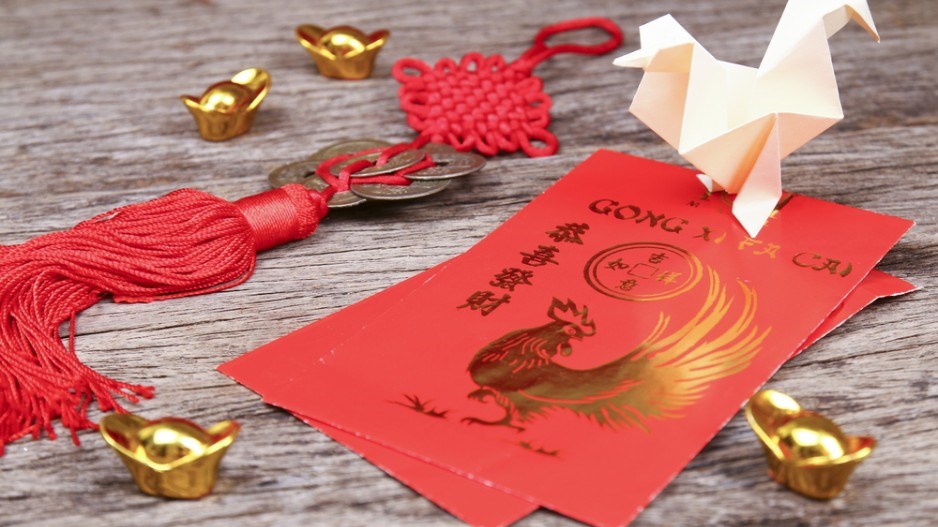Hong Kong stocks are predicted to head lower on Wednesday, the first trading day of the Year of Rooster, as markets return from a four-day holiday to catch up with recent losses for global equities amid concerns over Donald Trump’s tightening of US immigration rules, and a volatile political environment in the United States.
“Tomorrow, Hong Kong will most likely close down 1 to 1.5 per cent.” said Brett McGonegal chief executive of Capital Link International, who added that he would not be a buyer at those levels.
“While I think this story ends well later in the year, the next couple months will be very bumpy. I think we could see a 10 per cent move lower before we find meaningful support. This will not happen tomorrow but most likely over the next few months.”
Last Friday, the Hang Seng Index closed at 23,360.78, up 21 per cent for the Year of the Monkey, the biggest annual jump since the Year of the Ox in 2009. Meanwhile, the Hang Seng China Enterprise Index rose 21.73 per cent in the Year of the Monkey to 9,804.05. Sentiment was boosted by US equities, as last week the Dow Industrial Average topped 20,000 for the first time.
However, a controversial immigration ban by President Donald Trump unnerved global investors at the end of last week. On Monday, the Dow Industrial Average plunged by the most in three months, declining 122.65 points to 19,971.13.
“If we see a further decline in the US markets overnight, I would predict that on Wednesday Hong Kong will open a little lower, and close down about 100 points,” said Louis Tse, director at VC brokerage, speaking before markets opened in the US.
In New York, markets opened down on Tuesday morning. The S&P 500 eased 0.3 per cent from Monday’s close, the Dow Jones Industrial Average was down 0.28 per cent, and the Nasdaq Composite Index retreated 0.30 per cent.
The latest example of Trump administration induced volatility were remarks by Peter Navarro, the head of the new White House National Trade Council. In an interview with the Financial Times on Tuesday, he described Germany as exploiting the US and other countries in the EU with an “implicit Deutsche Mark” that is “grossly undervalued”. The euro then spiked 0.55 per cent against the dollar.
Writing on Twitter, former UBS chief economist George Magnus described the claims as “hogwash”, saying that it was not Germany’s currency to influence or manage.
The CBOE Volatility Index, a measure of investor anxiety, jumped 12 per cent on Monday, the biggest increase in three months. The price of gold rose for the first day in five, with April gold futures settling at US$1,196 an ounce.
“If the surge in CBOW volatility index and the climb back toward the US$1,200 level for gold tells me anything, it’s that Asian markets are poised for declines,” said Pan Jingyi, a strategist for IG Group.
“Chinese and Hong Kong markets will be glad to sit out this reactive stage on Tuesday.”
“Global markets priced in perfect policy and flawless execution in Trump’s opening weeks and as we are seeing things unfold, none of that is coming to fruition. The uncertainty that is unfolding is casting a shadow over the market,” said McGonegal.
On Friday, Trump signed an executive order banning immigrants and refugees from seven Muslim-majority countries.
Acting Attorney General Sally Yates -- an Obama administration appointee -- was fired on Monday after she refused to enforce the legal order. Dana Boente, who was appointed to replace Yates, has since instructed the Justice Department’s lawyers to defend the immigration ban against legal challenges.
The US dollar also weakened against other major currencies for the second day on Tuesday, weighing on the stock prices of Asian exporters and technology firms.
The greenback weakened by as much as 0.5 per cent to 113.24 against the yen, dropping by a combined 1.4 per cent since Friday.
In the offshore yuan market, the dollar bought 6.8562 yuan, down 0.1 per cent from Monday’s 6.8633 yuan. Onshore yuan trading has been shut since January 27 for Lunar New Year holidays.
“Investor sentiment has quickly turned, as the Tumpenomics’ rally has given way to a vote of no confidence from investors who are growing leery of Trump’s agenda and are restless about the lack of focus on the fiscal front,” said Stephen Innes, a senior currency trader at Oanda Asia Pacific.
Currency market gyrations spilled over to Asian equities during the holiday-shortened trading week, with bourses closed in Hong Kong, Shanghai, Shenzhen and Taiwan on Tuesday.
Elsewhere around Asia stocks fell, with the Nikkei 225 Index dropping 1.7 per cent in Tokyo to close at 19,041.34. The Kospi in Seoul fell 0.8 per cent to end at 2,067.57.
“There’s an increasing level of unease amongst investors that the recent executive orders are eroding political relationships abroad and will have negative impact on US trade negotiation,” Innes said.
Read the original article on the South China Morning Post.




